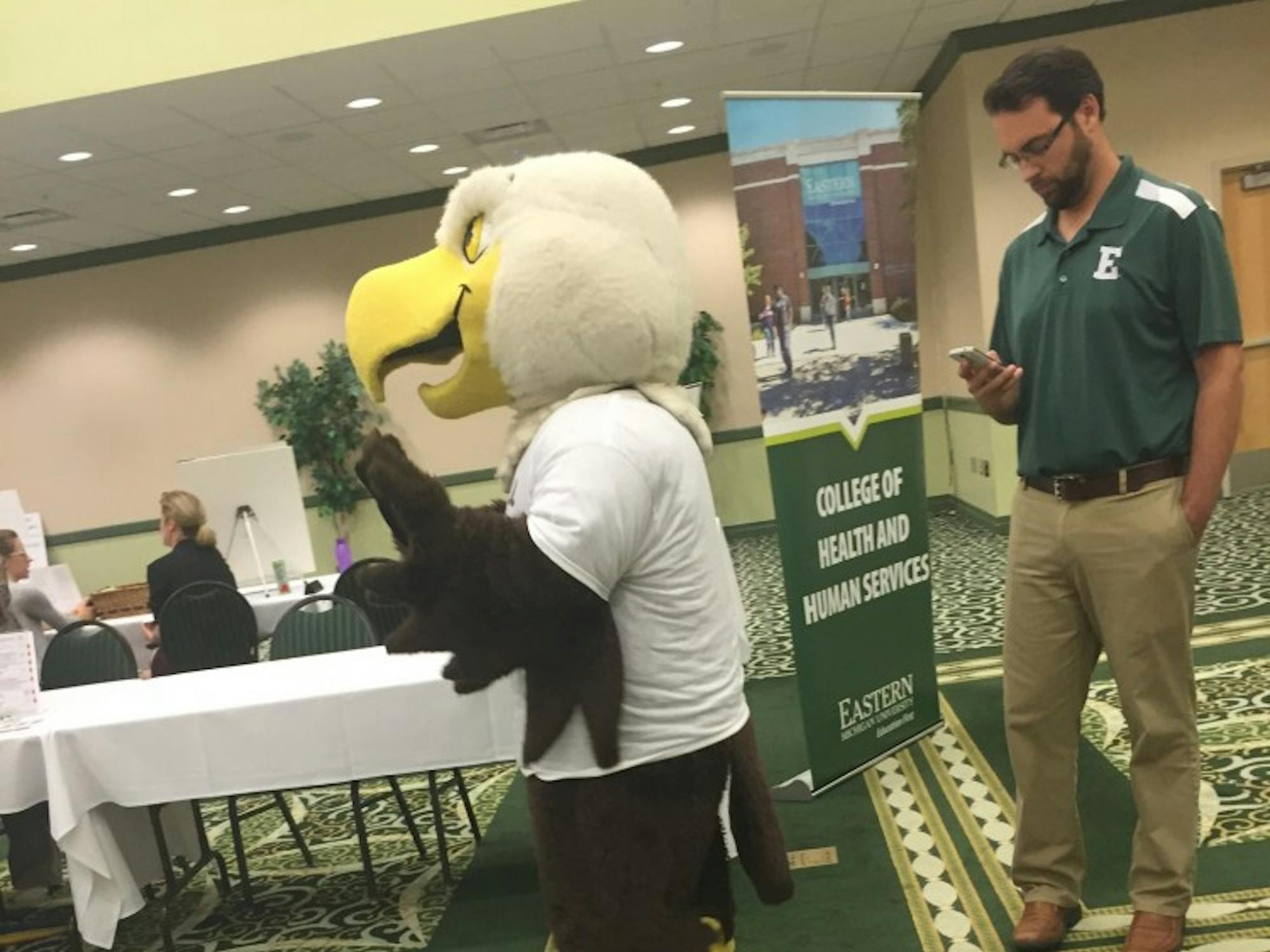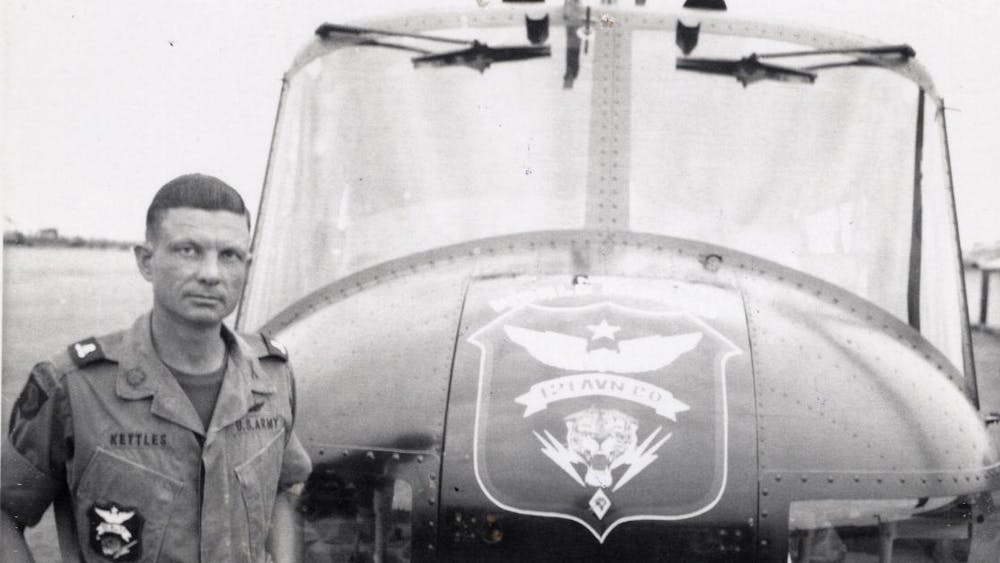Choosing a major can be a challenge for students, but Eastern Michigan professors and department heads offered their knowledge, help, and advice at the Fall Major Fest in the Student Center on Tuesday, Sept. 29.
Tables were set up in the ballroom for students to approach professors and ask any questions they may have had regarding their major and its curriculum or what to expect in the job field after graduating.
Economics is a major that teaches students how to work with data and understand data, said Professor James Saunoris.
“The nice thing about economics is its very versatile. No matter what field you go into, economics will be beneficial,” said Saunoris. He listed possible jobs after graduation, which included: accountant, banker, budget analysts, and financial analysts, as well as an economist.
Professor Christine Neufeld said literature is a major that focuses not only on reading, but also on honing students’ writing and thinking skills. Literature teaches students the “soft skills,” Neufeld referred to them as, which includes critical thinking, independent research, problem-solving, reading between the lines, and communicating effectively.
Neufeld admitted that there is not an obvious path for literature majors, but that formulas don’t necessarily work. A person has to be creative.
“We’re the raw material. We create people who can be put in any situation,” said Neufeld.
Eastern offers a major for students who want to be pilots, flight attendants, or be involved in aviation management. The aviation flight major has gone unnoticed by many and includes roughly 150 students.
The aviation flight major is split into a flight major and an aviation management major. Both majors take the same core aviation classes, and flight majors go to Willow Run Airport to learn to fly, get their private pilot license and their commercial license, which costs around $60,000 on top of tuition, according to Philip Tartalone, professor of aviation technology.
“When they’re done, they have all the qualifications to get hired by an airline,” said Tartalone. “There’s a very small percentage of pilots and flight attendants, those on flying status, but they’re the most visible. The administrative things in the background are huge. The business side is very, very important.”
Students with aviation management majors can work in airline/airport management or administration, marketing and sales, and be flight dispatchers or schedule flights.
Apparel, textiles, and merchandising is a major that allows students to be creative and put their interests first, said professor Cathryn Amidei.
Students with an ATM major can work in merchandising, work at corporate with fashion companies, become entrepreneurs, or work in laboratories, among other things, according to Amidei, who also said that students who focus on textiles can work in automobile and automobile related businesses.
“We’ve had people who have moved to New York and are working for designers. We’ve also got people that are working in textile design areas. It’s broad. So it’s both creative and business oriented,” said Amidei.
The communication technology major takes the technical aspects of communication and shows people how they are interrelated and interdependent, said professor David Gore. He said students will be prepared to step into a mid-management level career within three to five years after graduating.
“We’re in the information age,” said Gore. “Printing, television, photography, computers—all those things are working together.”
The curriculum has classes that teach students how all those aspects work together. The elective hours allow students to give themselves a concentration of which area they want to focus on in the field.
“It can go in as many different directions as people want it to go,” he said.










